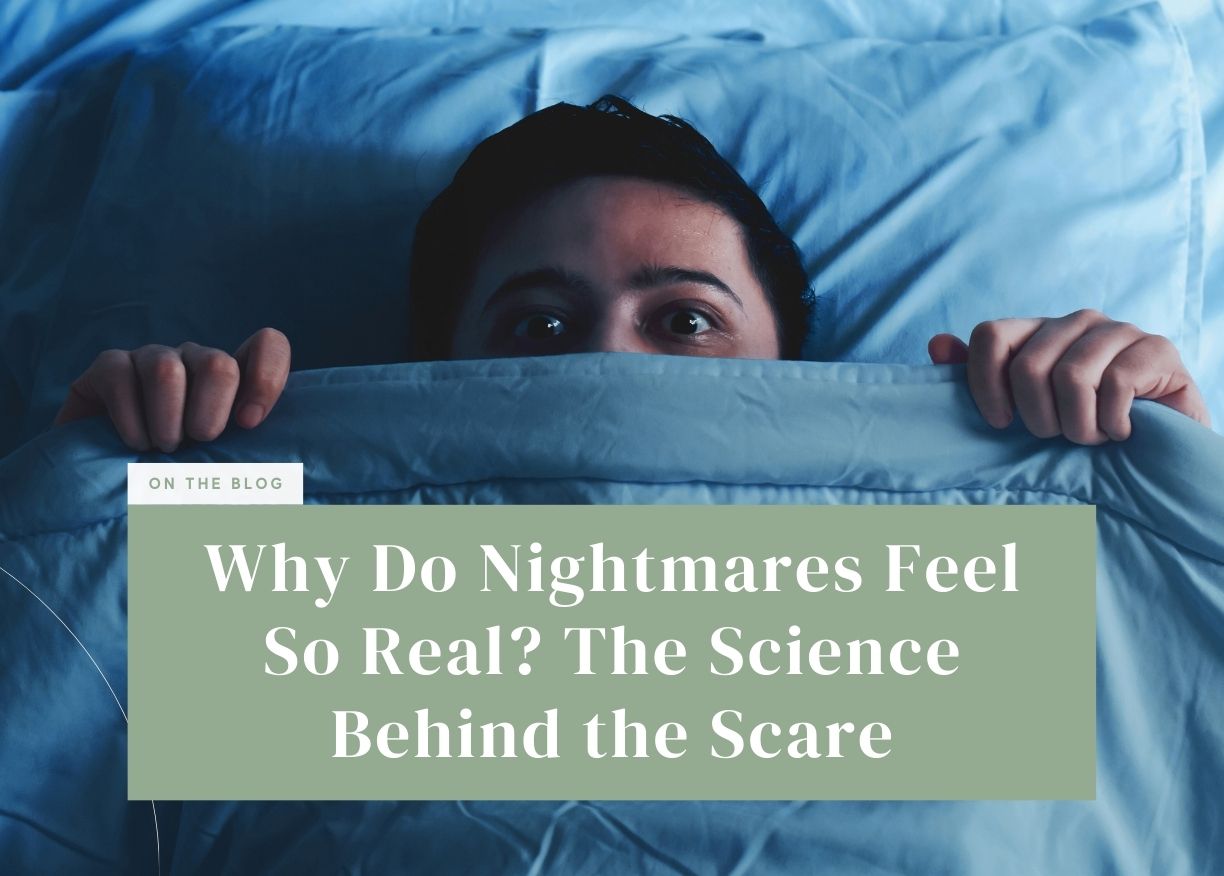Why Do Nightmares Feel So Real? The Science Behind the Scare
You jolt awake, heart racing, skin damp, mind spinning.
For a moment, the fear is still there—whatever chased you, whatever fell apart, whatever you lost.
Then slowly, it fades.
You realize it wasn’t real. It was just a dream.
And the overwhelming feeling? Relief.
But why do nightmares grip us so tightly—and why does waking up feel like escaping another life?
The Science of Fear in Sleep

Nightmares happen mostly during REM sleep, the stage where brain activity resembles waking thought. The difference is, your body is paralyzed while your brain runs wild.
Studies show nightmares activate the same fear centers in the brain as real-life stress. Your amygdala (the brain’s alarm system) fires, your heart rate climbs, and stress hormones like adrenaline surge—even though nothing’s actually happening.
That’s why the emotions can feel so real—and why waking up is such a shock of relief.
Why We Have Nightmares at All

Scientists still debate the purpose of nightmares, but leading theories suggest they:
-
Process emotions: Your brain replays stress in distorted, symbolic form to help you cope.
-
Prepare for threats: Some researchers think nightmares are a kind of “simulation training,” rehearsing responses to danger.
-
Reflect health: Nightmares can spike with illness, anxiety, or even certain foods before bed.
In other words: nightmares may not be pleasant, but they might be part of how your brain protects you.
When Nightmares Become Too Much
An occasional nightmare is normal. But frequent, vivid nightmares can signal deeper issues—chronic stress, trauma, or disrupted sleep cycles. Left unchecked, they can harm overall rest and leave you drained.

If nightmares are constant, experts recommend:
-
Setting a consistent bedtime and wake time
-
Limiting alcohol and caffeine at night
-
Practicing relaxation techniques before bed
-
Speaking with a doctor if they persist
How Better Sleep Makes Better Dreams
You can’t banish nightmares entirely—but you can improve the conditions that make them less frequent and less intense.
🌿 Honey Hybrid Organic Mattress: By supporting your body evenly and reducing tossing, it helps you stay in steadier sleep cycles.
🌿 Plant-Based Pillow: Keeps your head and neck aligned, reducing restless micro-awakenings.
🌿 Bamboo Sheets: Cooling and breathable, helping your body stay in deep, restorative sleep stages.
Because the more balanced your sleep, the easier it is for your brain to do its nightly work—without veering into chaos.
Final Thoughts
Nightmares remind us of the thin line between dream and reality. They grip, they scare, they linger—
but they also fade.
And that wave of relief you feel when you wake? It’s your brain saying: you’re safe here, in the real world.
Tonight, as you drift off, remember: your dreams may wander into shadows, but your sleep space can keep you steady until the morning light.





